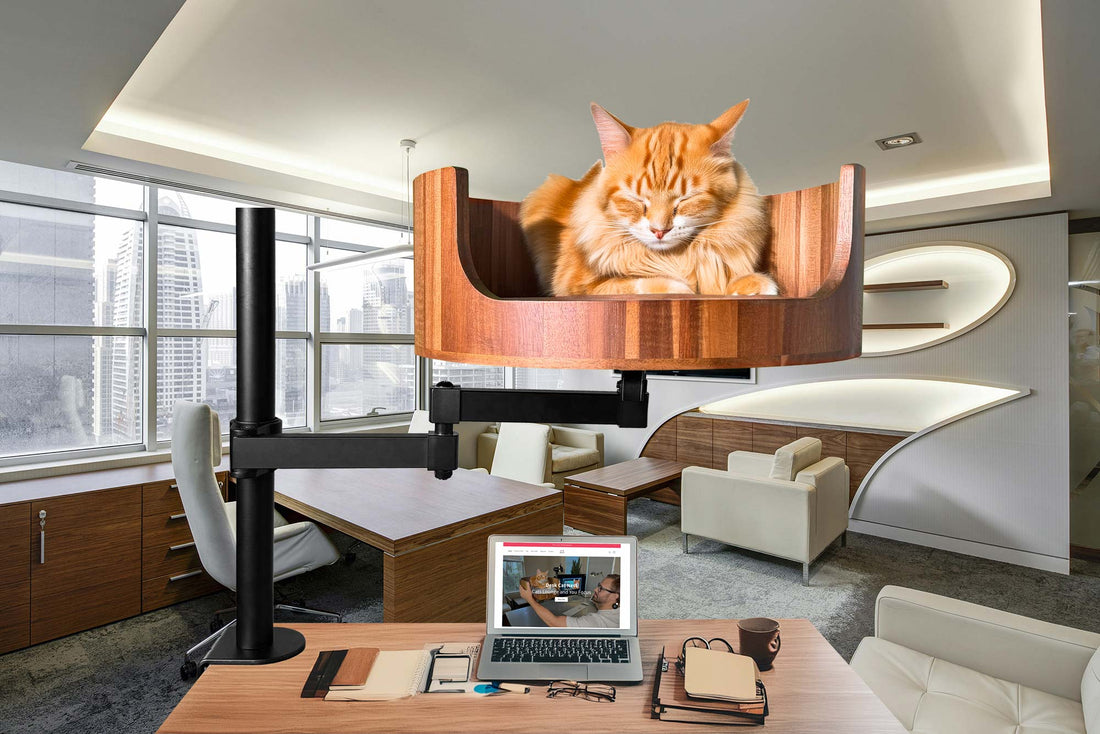
Why Does My Cat Eat Plastic? Understanding the Behavior
Share
Have you ever caught your cat chewing on plastic bags or other household items? This odd behavior might have you scratching your head and wondering why your feline friend has a taste for plastic. In this article, we will explore the reasons behind why cats eat plastic and what you can do to help prevent this potentially dangerous habit.
Desk Cat Nest, a popular online platform for cat lovers, has seen an influx of inquiries about this strange behavior from concerned pet owners. From plastic bags to phone chargers, cats seem to have a peculiar attraction to chewing and consuming plastic materials. But what drives this behavior? We will delve into the possible reasons behind cats eating plastic, such as pica, stress, or nutritional deficiencies. Additionally, we will provide tips on how to discourage this behavior and keep your furry friend safe.
1. Some cats may have a condition called pica, which causes them to eat non-food items like plastic.
2. Stress, anxiety, or boredom can also contribute to a cat's plastic-eating behavior.
3. It's important to keep plastic and other harmful items out of reach to prevent potential health issues in cats.
4. Providing mental and physical stimulation, such as toys and interactive play, can help curb a cat's urge to eat plastic.
5. Consulting with a veterinarian is essential to rule out any underlying medical issues and develop a plan to address the behavior.
What is Pica in Cats?
Pica is a condition where cats have the urge to eat non-food items, such as plastic, fabric, or paper. This behavior is more common in cats than you might think and can be concerning for cat owners. Some theories suggest that pica in cats may be related to nutritional deficiencies, while others believe it could stem from stress or boredom.
Possible Reasons Your Cat Eats Plastic
There are several reasons why your cat may have developed a habit of eating plastic. One common reason is that plastic can have a similar texture to grass, which cats may instinctively eat to aid in digestion. Additionally, some cats may find the smell or taste of certain plastics appealing. Another reason could be that your cat is seeking attention or trying to relieve boredom by engaging in this behavior.
Risks of Cats Eating Plastic
Eating plastic can pose serious health risks to your cat. If ingested, plastic can cause intestinal blockages, leading to symptoms such as vomiting, diarrhea, lethargy, and loss of appetite. In severe cases, surgery may be required to remove the blockage, which can be both costly and risky for your cat.
How to Prevent Your Cat from Eating Plastic
To prevent your cat from eating plastic, it's important to first identify the underlying cause of their behavior. If your cat is eating plastic due to stress or boredom, providing more mental stimulation and interactive playtime can help redirect their focus. Additionally, ensuring that your cat has a proper diet and access to appropriate chew toys can reduce their urge to consume non-food items. If necessary, consult with your veterinarian for further guidance on managing and preventing pica in your cat.
Frequently Asked Questions
Why does my cat eat plastic?
Cats may eat plastic for a variety of reasons, including seeking attention, stress or anxiety, a nutritional deficiency, or simply out of curiosity. It is essential to monitor your cat's behavior and consult with a veterinarian to determine the underlying cause.
Is it harmful for my cat to eat plastic?
Yes, eating plastic can be harmful to your cat. It can cause intestinal blockage, choking hazards, and other health issues. It is important to keep plastic items out of your cat's reach to prevent them from ingesting it.
How can I prevent my cat from eating plastic?
To prevent your cat from eating plastic, make sure to keep all plastic items out of their reach. Provide stimulating toys, interactive playtime, and a well-balanced diet to help alleviate any potential reasons for their plastic-eating behavior.
Will the Desk Cat Nest help stop my cat from eating plastic?
While the Desk Cat Nest provides a cozy and comfortable space for your cat to relax and sleep in, it is not specifically designed to address the issue of plastic-eating behavior. It is important to address the underlying reasons causing your cat to eat plastic to prevent any harm to their health.
In conclusion, if your cat has a tendency to eat plastic, providing them with a Desk Cat Bed can help alleviate this behavior. The elevated design of the bed provides a safe and cozy space for your cat to rest, reducing their urge to seek out alternative materials to chew on. Additionally, the sturdy construction of the bed ensures durability and longevity, making it a valuable choice for both you and your feline companion. Invest in a Desk Cat Bed today to provide your cat with a comfortable and safe environment, ultimately eliminating their desire to consume harmful plastic materials.



















































